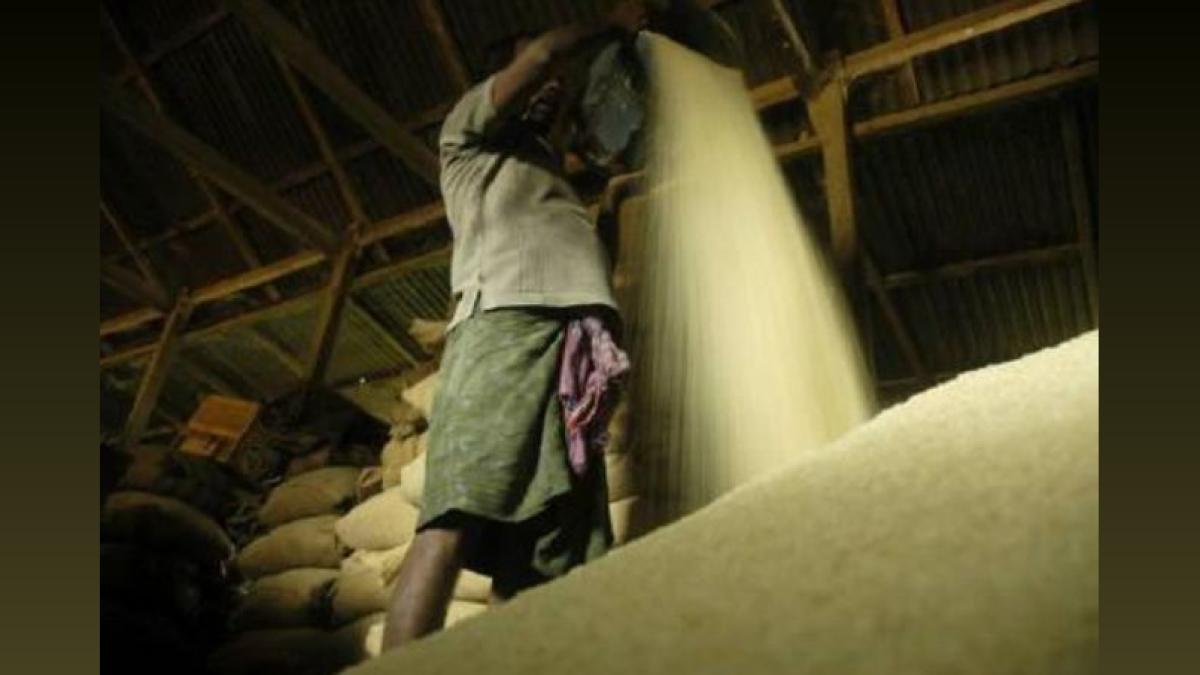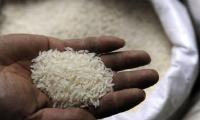India to Amend Geographical Indications Law: Key Changes &' Impact
India proposes amendments to its Geographical Indications (GI) law to enhance protection and promotion of community intellectual property rights. Learn about the proposed changes and their impact on Indian products.

New Delhi, Oct 1 (PTI) The government is planning to amend the Geographical Indications (GI) of goods' law and has sought comments from public and concerned stakeholders for the same.
Stakeholders can submit their comments and suggestions by October 10.
"The Department for Promotion of Industry and Internal Trade (DPIIT) is in the process of amending the Geographical Indications of Goods (Registration and Protection) Act, 1999," according to a public notice of the commerce and industry ministry.
A GI is primarily an agricultural, natural or manufactured product (handicrafts and industrial goods) originating from a definite geographical territory.
Typically, such a name conveys an assurance of quality and distinctiveness, which is essentially attributable to the place of its origin.
There is a proper process of registration of GI products which includes filing of application, preliminary scrutiny and examination, show cause notice, publication in the geographical indications journal, opposition to registration, and registration.
Any association of persons, producers, organisation or authority established by or under the law can apply. The applicant must represent the interest of the producers.
It is a legal right under which the GI holder can prohibit others from using the same name.
The famous goods which carry this tag include Basmati rice, Darjeeling Tea, Chanderi Fabric, Mysore Silk, Kullu Shawl, Kangra Tea, Thanjavur Paintings, Allahabad Surkha, Farrukhabad Prints, Lucknow Zardozi and Kashmir Walnut Wood Carving.
Under the Paris Convention for the Protection of Industrial Property, GI is covered as an element of intellectual property rights (IPRs). They are also covered under the WTO's Trade Related Aspects of Intellectual Property Rights (TRIPS) agreement.
Once a product gets this tag, any person or company cannot sell a similar item under that name. This tag is valid for a period of 10 years following which it can be renewed.
The other benefits of GI registration include legal protection for that item, prevention against unauthorised use by others, and promoting exports.
"General public and concerned stakeholders are hereby invited to submit their comments and suggestions regarding the proposed amendments to the act," it said.
According to experts, the government's initiative to amend the GI Act is crucial for the protection and promotion of community intellectual property rights.
Since the inception of the law, India has seen relatively few registrations compared to regions like the European Union and China, they said, adding India has 643 registered GIs, of which 40 are of foreign origin, including champagne and scotch whisky.
"India has the potential to register over 10,000 GIs, but to realise this, amendments to the current act are necessary," Great Mission Group Society (GMGS), a non-government organisation, Founder and Chairman Ganesh Hingmire said.
He also suggested that in the amendment, the government agencies should not be the applicants for GIs, as currently, more than 30 per cent of India's GIs are registered by such agencies.
"This practice has not been effective in delivering real benefits to the communities involved. The registration process also needs simplification and increased transparency. The consultative group meetings, which are not a part of the Act itself but are covered under the rules, often delay the process," he said.
He added that the GI registration process should be aligned with other intellectual property rights such as patents, trademarks and copyrights.
Intellectual property officers and trademark examiners across India should handle GIs in the same manner, which would streamline the process and ensure clarity.
"The creation of a National Geographical Indication Board, similar to bodies like the Tea and Coffee Boards, is also recommended. This board can provide crucial assistance to various communities, including farmers, artisans, weavers and tribal groups. The proposed amendments should focus not only on protecting community intellectual property rights but also on enforcing them, ensuring authenticity, and bringing genuine products to consumers. These changes will empower communities and strengthen the GI framework in India," Hingmire said.
Think tank Global Trade Research Initiative (GTRI) said that while the European Union registered more than 3,400 GI products, covering agricultural goods, food, wines, and spirits, China leads the world with around 7,247 GI products as of 2021.
These figures highlight the global effort to protect the unique qualities and traditions of regional products.
"Many Indian GI products remain unknown internationally due to inadequate branding, limited promotional efforts, and restricted access to global markets. Additionally, the absence of consistent quality control mechanisms and efficient management of GI tags hinders their ability to compete on the world stage," GTRI Founder Ajay Srivastava said.
Unlike countries such as France or China, where GI products are marketed as premium goods with extensive heritage, India's products often remain relegated to niche markets, he added.
"Creating a specific Harmonized System (HS) code for each GI product would greatly improve the availability of export data. While major GI products like Darjeeling tea and Basmati rice have dedicated HS codes, a significant number of India's other GI products do not. The lack of data makes it challenging to assess their international trade performance and identify opportunities for expansion," Srivastava said.
Stakeholders can submit their comments and suggestions by October 10.
"The Department for Promotion of Industry and Internal Trade (DPIIT) is in the process of amending the Geographical Indications of Goods (Registration and Protection) Act, 1999," according to a public notice of the commerce and industry ministry.
A GI is primarily an agricultural, natural or manufactured product (handicrafts and industrial goods) originating from a definite geographical territory.
Typically, such a name conveys an assurance of quality and distinctiveness, which is essentially attributable to the place of its origin.
There is a proper process of registration of GI products which includes filing of application, preliminary scrutiny and examination, show cause notice, publication in the geographical indications journal, opposition to registration, and registration.
Any association of persons, producers, organisation or authority established by or under the law can apply. The applicant must represent the interest of the producers.
It is a legal right under which the GI holder can prohibit others from using the same name.
The famous goods which carry this tag include Basmati rice, Darjeeling Tea, Chanderi Fabric, Mysore Silk, Kullu Shawl, Kangra Tea, Thanjavur Paintings, Allahabad Surkha, Farrukhabad Prints, Lucknow Zardozi and Kashmir Walnut Wood Carving.
Under the Paris Convention for the Protection of Industrial Property, GI is covered as an element of intellectual property rights (IPRs). They are also covered under the WTO's Trade Related Aspects of Intellectual Property Rights (TRIPS) agreement.
Once a product gets this tag, any person or company cannot sell a similar item under that name. This tag is valid for a period of 10 years following which it can be renewed.
The other benefits of GI registration include legal protection for that item, prevention against unauthorised use by others, and promoting exports.
"General public and concerned stakeholders are hereby invited to submit their comments and suggestions regarding the proposed amendments to the act," it said.
According to experts, the government's initiative to amend the GI Act is crucial for the protection and promotion of community intellectual property rights.
Since the inception of the law, India has seen relatively few registrations compared to regions like the European Union and China, they said, adding India has 643 registered GIs, of which 40 are of foreign origin, including champagne and scotch whisky.
"India has the potential to register over 10,000 GIs, but to realise this, amendments to the current act are necessary," Great Mission Group Society (GMGS), a non-government organisation, Founder and Chairman Ganesh Hingmire said.
He also suggested that in the amendment, the government agencies should not be the applicants for GIs, as currently, more than 30 per cent of India's GIs are registered by such agencies.
"This practice has not been effective in delivering real benefits to the communities involved. The registration process also needs simplification and increased transparency. The consultative group meetings, which are not a part of the Act itself but are covered under the rules, often delay the process," he said.
He added that the GI registration process should be aligned with other intellectual property rights such as patents, trademarks and copyrights.
Intellectual property officers and trademark examiners across India should handle GIs in the same manner, which would streamline the process and ensure clarity.
"The creation of a National Geographical Indication Board, similar to bodies like the Tea and Coffee Boards, is also recommended. This board can provide crucial assistance to various communities, including farmers, artisans, weavers and tribal groups. The proposed amendments should focus not only on protecting community intellectual property rights but also on enforcing them, ensuring authenticity, and bringing genuine products to consumers. These changes will empower communities and strengthen the GI framework in India," Hingmire said.
Think tank Global Trade Research Initiative (GTRI) said that while the European Union registered more than 3,400 GI products, covering agricultural goods, food, wines, and spirits, China leads the world with around 7,247 GI products as of 2021.
These figures highlight the global effort to protect the unique qualities and traditions of regional products.
"Many Indian GI products remain unknown internationally due to inadequate branding, limited promotional efforts, and restricted access to global markets. Additionally, the absence of consistent quality control mechanisms and efficient management of GI tags hinders their ability to compete on the world stage," GTRI Founder Ajay Srivastava said.
Unlike countries such as France or China, where GI products are marketed as premium goods with extensive heritage, India's products often remain relegated to niche markets, he added.
"Creating a specific Harmonized System (HS) code for each GI product would greatly improve the availability of export data. While major GI products like Darjeeling tea and Basmati rice have dedicated HS codes, a significant number of India's other GI products do not. The lack of data makes it challenging to assess their international trade performance and identify opportunities for expansion," Srivastava said.
You May Like To Read
TODAY'S MOST TRADED COMPANIES
- Company Name
- Price
- Volume
- Vodafone-Idea-L
- 11.65 (+ 3.56)
- 106772451
- Alstone-Textiles
- 0.28 ( -3.45)
- 44187760
- Mangalam-Industrial
- 0.88 ( -2.22)
- 39177573
- Sunshine-Capital
- 0.27 (+ 3.85)
- 35956340
- GMR-Airports
- 104.40 (+ 6.37)
- 30453005





